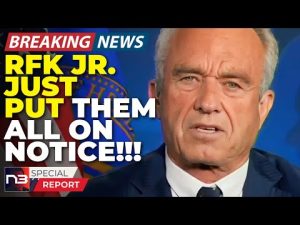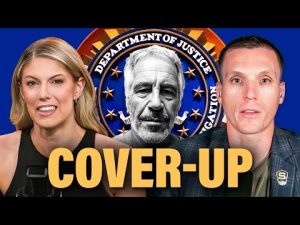**Judicial Insurrection: The Case of Judge Bosberg**
In recent days, the spotlight has turned to Judge Bosberg, a name that has become synonymous with controversy in the conservative circles. This judge, often labeled a radical leftist judicial activist, has made waves with what some are calling a Judicial Insurrection. The term itself stirs a flurry of emotions, as it suggests an attempt to subvert the authority of the duly elected government. And in this case, that government is led by none other than President Donald Trump, the man who received the votes of millions, including voters across the nation.
According to conservative analysts, Judge Bosberg’s actions have overstepped his bounds as a judge in an inferior court. Critics argue that he is attempting to thwart President Trump’s constitutional right to execute foreign policy. The president’s prerogatives include the authority to deport non-citizens who have invaded the country or, worse, committed crimes such as being linked to notorious gangs like MS-13. When Trump decided to send gang members back to El Salvador—a decision bolstered by diplomatic agreements—a ruling by Judge Bosberg challenged this executive power. The implication is clear: many believe that the judge’s actions are not just inappropriate but fundamentally anti-government.
The allegations against Judge Bosberg don’t stop at this particular ruling. Critics have pointed to his prior tenure on the FISA court, highlighting questionable actions that may have contributed to the turmoil surrounding President Trump’s administration. This includes a significant incident involving an FBI attorney, who was convicted for altering evidence that misrepresented the implications of communications regarding potential collusion with foreign entities. Despite the serious nature of this misconduct, Judge Bosberg dealt a light sentence, raising eyebrows and questions about his integrity.
Adding fuel to the fire, his connections to controversial figures, such as Ray Epps, further stain Judge Bosberg’s reputation. Epps has gained notoriety for his role in events surrounding the January 6 Capitol incident, being seen encouraging others to breach the perimeter. Shockingly, after being placed on the FBI’s most wanted list, Epps was later removed without clear justification. When he finally faced the court, he was met with a mere slap on the wrist—again, at the hands of Judge Bosberg, who chose to ease the consequences for a man who was part of a significant moment in American history that many deem as insurrectionist.
This blend of judicial leniency over serious offenses, as well as perceived power grabs, has left many conservatives rallying against what they perceive as the continued erosion of executive authority. They firmly believe that the Trump Administration has every right to push back against these so-called “power grabs.” The frustration is palpable, with many calling it a form of resistance and a challenge to the authority given to their elected leaders.
In summary, the case of Judge Bosberg serves as a prime example of the confluence of legal authority and politics in America today. His decisions have sparked intense debate and mobilized opposition against what some see as an undermining of the very framework of American governance. As this drama unfolds, it raises critical questions about the boundaries of judicial power and the responsibilities of an executive team unwilling to back down from judicial overreach. In the eyes of many, the Trump Administration must remain vigilant and stand firm in the face of this alleged Judiciary Insurrection—because if not, who knows what other judicial antics might come next?



